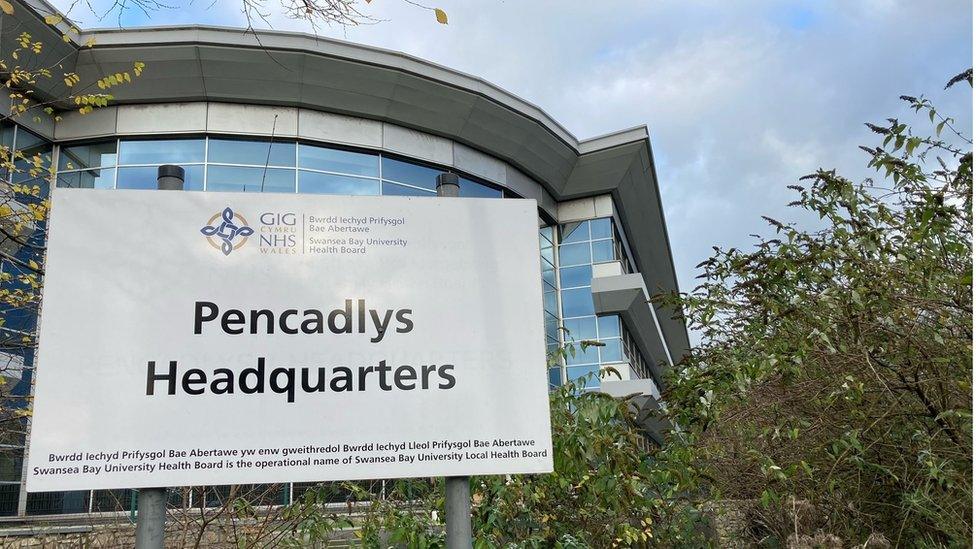Disabled children: Most carers not offered assessment
- Published
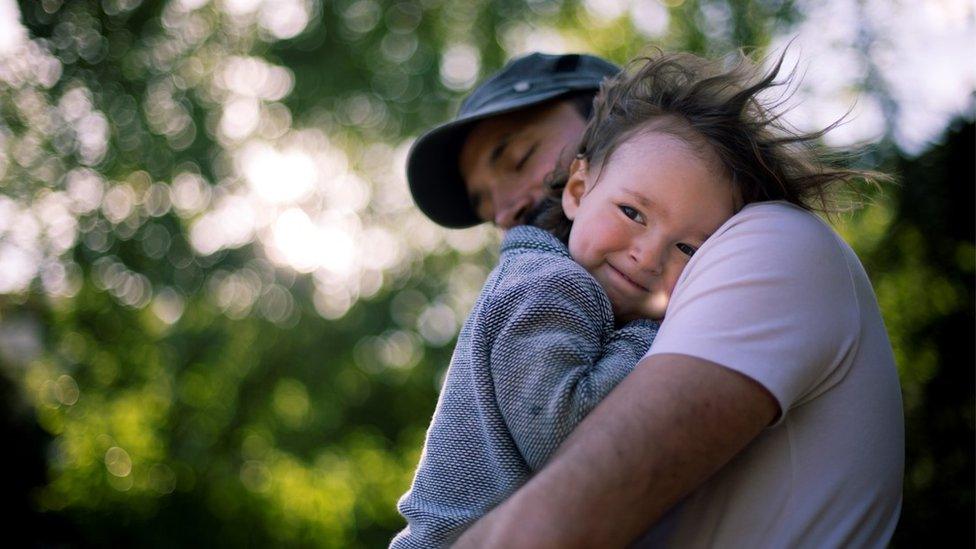
There are concerns carers are not getting the help they need
Almost two-thirds of people who care for disabled children have not been offered an assessment of their needs, according to a new report.
Gillian Baranski of Care Inspectorate Wales called it unacceptable and said she was disappointed by the findings.
The report looks at how well local authorities, working with partners, help disabled children.
The Welsh Local Government Association said it contained positives, but also "some difficult messages".
The Welsh government said it was "committed to working to increase the take up of assessments for carers in need of statutory support".
"I was very disappointed to see those figures and surprised," said Ms Baranski, the CIW chief inspector.
"It seems that a fundamental principle of accessing a service is an assessment of you and your child's needs, and support to enable them to flourish. It's unacceptable."
'Incredibly low'
Of the 289 parents and carers interviewed for the report, 190 (65.7%) said they had not been offered an assessment.
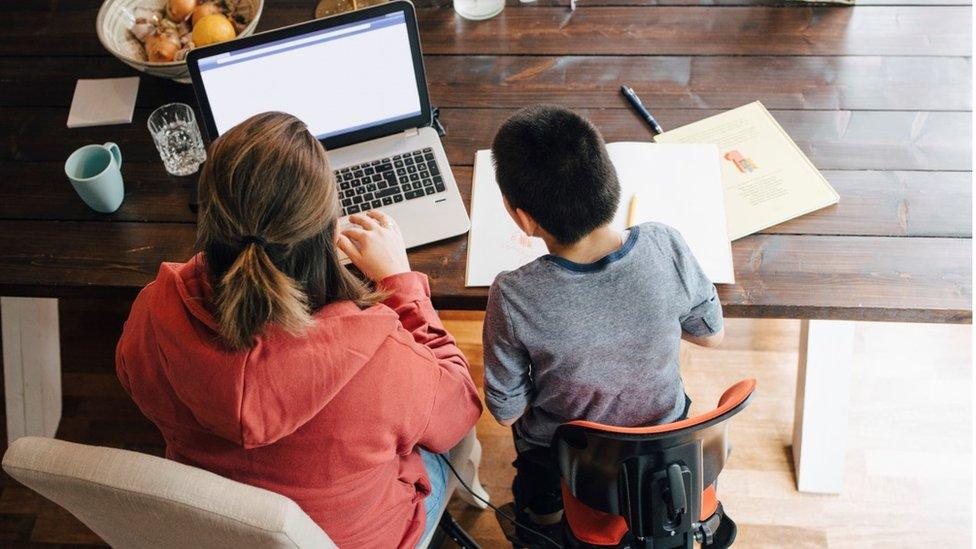
Most parents and carers of disabled children have not had their needs assessed
The finding comes four years after an "incredibly low" number of unpaid carers were offered extra support.
People who look after a loved one are legally entitled to a needs assessment to see whether they are eligible for additional help.
It might recommend things like:
someone to take over caring so you can take a break
gym membership and exercise classes to relieve stress
help with taxi fares if you don't drive
help with gardening and housework
training how to lift safely
putting you in touch with local support groups so you have people to talk to
advice about benefits for carers
(Source: NHS)
But in 2016-17, a study found that 13,071 out of 370,000 carers were offered an assessment, or 3.5%.
The report by CIW with Healthcare Inspectorate Wales found specifically for disabled children, it is now about 34%.
While it found "good joint working" on safeguarding disabled children, carers and parents felt they would have benefitted from additional services and support to promote their wellbeing.
Waiting lists
It also found waiting lists for some services, including short breaks and respite care, with the coronavirus pandemic exacerbating the problem.
There were also some issues with how well the voices and choices of disabled children were "sought, heard and captured".
Also, not all practitioners had received training specific to the communication needs of the individual children they were working with.
"It is essential, now more than ever, all partners take a rights-based approach to supporting children and their families," said Ms Baranski.
"This includes ensuring their views are reflected in all aspects of service planning and delivery."
HIW's interim chief executive Alun Jones said: "Working together with CIW enabled us to identify positive practice, learning points and areas for improvement that will support health boards, and local authorities, to focus their attention on making the changes needed to support disabled children and their families."
A WLGA spokesman said: "While we will need take time to consider the report in full, we welcome that it recognises the good joint working to ensure disabled children are safeguarded.
'Timely and effective'
"There are good examples of staff's efforts to develop professional relationships with disabled children and families.
"There are also some difficult messages that councils and their partners will want to take seriously, reflect on and seek to make improvements in supporting disabled children and their families."
A Welsh government spokesperson said it had committed to develop "a range of solutions" that enable local authorities to deliver "timely and effective" carers' needs assessments.
"We have worked with carers of all ages across Wales and our early feedback has told us more carers are taking steps to access the support they are entitled to," it said.
It said it would use evidence from the Social Care Institute of Excellence, Public Health Wales and data from the performance and improvement framework to determine specific actions.
The Welsh government said it had allocated extra funding of £10m to support unpaid carers of all ages, in 2021-22, including £3m allocated to local authorities to increase opportunities for carers to take a break.

MONUMENTAL MRS CAMPBELL: Wales' first black head teacher celebrated with iconic statue
MOTHERS, MISSILES AND THE AMERICAN PRESIDENT: The story of Greenham told like never before

Related topics
- Published20 July 2018
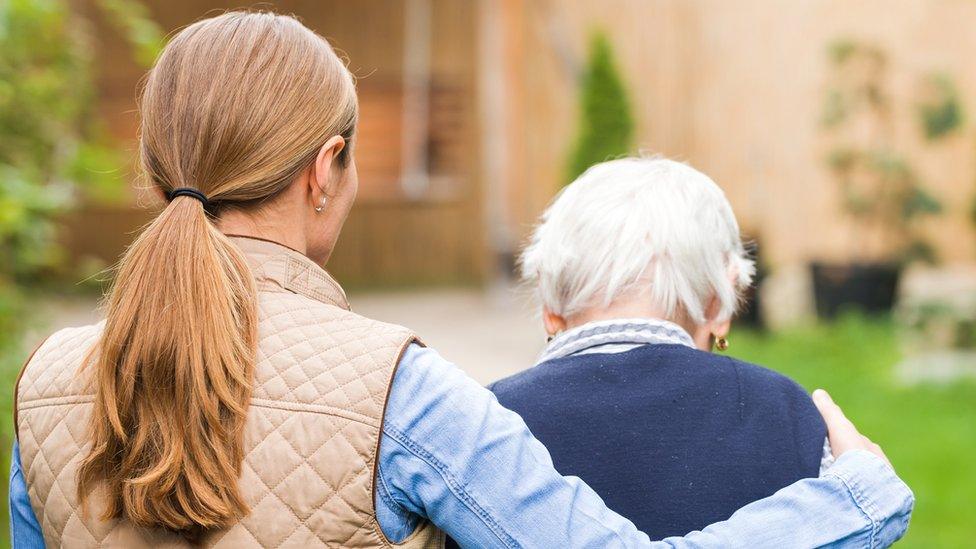
- Published1 November 2020
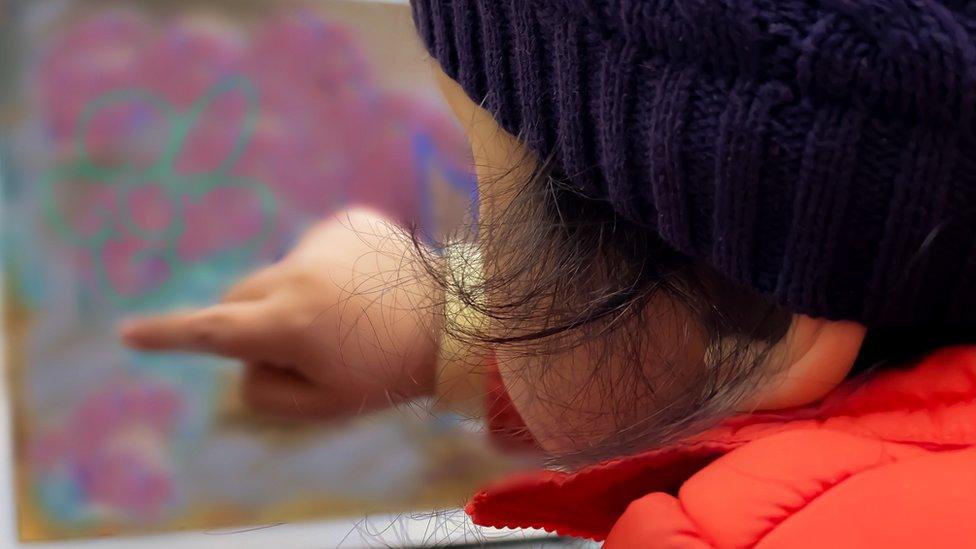
- Published24 November 2021
